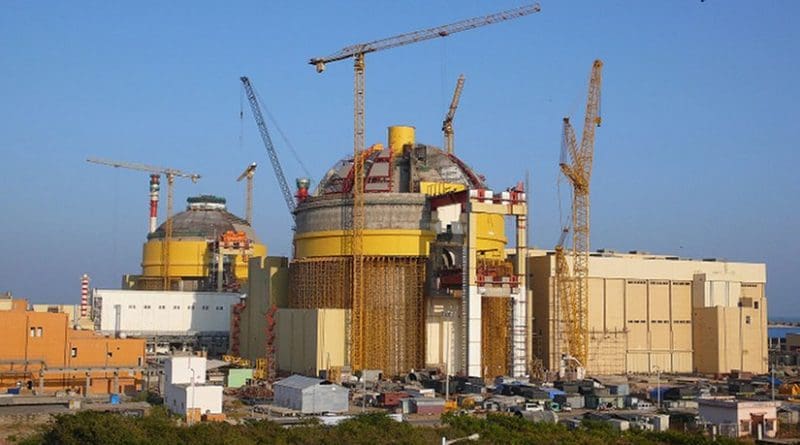India’s NSG Membership And The Human Capital Factor – Analysis
By IPCS
By Abhijit Iyer-Mitra and Tarika Rastogi
The implications of India’s aspiration to join the Nuclear Suppliers Group (NSG) has been dissected variously from a strategic prism, as well as from the industrial. While industrial dissections of the argument have focused on India’s lack of commercially tested and hence viable technology for export, the human aspect of this has been almost completely ignored. On close examination it would seem that the human capital element of India’s nuclear programme could be a major Trojan Horse for entry into the NSG, but could also turn into an industrial bottleneck without NSG membership.
India is already assisting as a knowledge partner in Russian nuclear projects like such as the Rooppur Nuclear Power Plant in Bangladesh. India has signed agreements with Russia’s Rosatom to provide similar services in Vietnam and Sri Lanka, if and when those countries agree to the purchase/installation of Russian reactors. Clearly, this points to some level of Russian confidence in India’s human resources in the nuclear field, as well as in its capacity building ability. This is also an indicator of the emergence of some kind of geographical market-sharing arrangement, where India becomes a knowledge partner for Russian reactors at least in the eastern part of Asia. What remains to be seen if this can be replicated as a global model.
With India’s Jaitapur Nuclear Power plant (six units of the European pressurised water reactor), the first two units are being built solely by Areva. But for the remaining four, unspecified services are to be assigned to local companies, in addition to local workshare. Specifically, an agreement has been signed with Larsen & Toubro to create a training centre for design and construction standards for equipment manufacturing for the Jaitapur plant. The National Power Corporation of India Limited (NPCIL), the owner and operator of this facility, will be responsible for obtaining certification and will oversee construction of the reactors and plant infrastructure with assistance from Électricité de France (EDF) and its partners. As simple as this may sound on paper, these are all educative processes that involve the training of micro-specialists on a large scale, creating the kernel of a train-the-trainer programme.
India then will be privy to knowledge of both Russian and French construction processes and standards, in addition to operations and security. This creates domain knowledge that spans two of the most successful commercial reactors in the market today. As things stand, IAEA inspections of Indian rectors are heavily exempted, leading to criticisms of a lack of transparency. Consequently, adapting existent Indian expertise to third country reactors, which function under more transparent operating standards, as well as more stringent IAEA inspections, allows the building of greater international confidence in India’s own procedures and expertise. This will be particularly important in reducing the concerns of some member states of the NSG.
The nuclear knowledge sector foray is also important to India for purely commercial reasons. In the Rooppur plant, for example, India is only allowed access to participate in areas not covered directly under Russian interpretations of the relevant NPT and NSG guidelines. While the French terms and conditions are not clear, there may very well be some restrictions arising due to French legal interpretations of the same provisions. As such these bars would act as bottlenecks to India developing a range of expertise across the nuclear sector. While there is the possibility of bilateral negotiations in overcoming these loopholes and expanding the respective national interpretations of the relevant rules, such an agreement would always be ad-hoc and prone to the political climate and vagaries of each country. Such temporary measures do not engender confidence enough to invest the vast sums required for building up this sector in India. Therefore NSG membership is a must as it will give an ironclad legal basis for greater workshare in this field.
India’s 2008 waiver by the NSG conferred several advantages of a nuclear weapons state – advantages that some member states believe went a step too far for too little in return. While full membership will provide greater certainty and legal foundation to India’s nuclear programme, further integration will also incur a cost. India’s entry into the nuclear export market in the knowledge field provides a soft entry that does not appear to have ruffled too many feathers. One possible reason is that such a foray allows the international community to gain confidence in Indian safety and security standards and ethics through intervention from transparent experiences in third countries. Though seemingly minor, India’s entry into the nuclear knowledge sector must be seen as a major initiative with the possibility of significant returns on investment and part of a larger political gambit.

